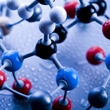
Alpha-lipoic acid (ALA) may have a positive impact on cognitive function, according to a study.
ALA is made naturally in the body and may protect against cell damage in a variety of conditions. Food sources rich in alpha-lipoic acid include spinach, broccoli, and yeast. ALA, known as the "universal oxidant," has been used for decades in Europe to treat nerve conditions, including nerve damage resulting from poorly controlled diabetes. There is strong evidence that ALA may help treat type 2 diabetes and neuropathy.
In the current study, researchers looked at the potential impact of ALA in a group of people with Alzheimer's disease, both with and without diabetes.
Diabetes, also known as diabetes mellitus, is a chronic health condition where the body is unable to produce enough insulin and properly break down sugar (glucose) in the blood. Glucose comes from food and is used by the cells for energy. Research suggests that diabetes is an important risk factor for Alzheimer's disease.
Alzheimer's disease (AD) is an irreversible, progressive disorder in which neurons (brain cells) deteriorate resulting in the loss of cognitive (thought) functions, primarily memory, judgment, reasoning, movement coordination, and pattern recognition. In advanced stages of the disease, all memory and mental functioning may be lost.
The authors of the current study examined the impact of 600 milligrams of daily ALA supplementation in individuals who had Alzheimer's disease who were divided into two groups, depending on whether or not they also had diabetes. Several types of assessments were used to determine the participants' level of cognitive function, including the Alzheimer's Disease Assessment Scale-cognitive and the Clinician's Interview-Based Impression of Severity.
At the end of the study, the researchers observed that ALA supplementation appeared to more significantly improve cognitive function in the group with diabetes, compared to the group without diabetes.
The authors concluded that ALA therapy may be effective in slowing cognitive decline in people who have both Alzheimer's disease and diabetes.
In addition to ALA, numerous other complementary and alternative therapies have been evaluated for their impact on cognitive function and decline. There is strong evidence supporting the use of caffeine for cognitive performance, and good evidence to support the use of light therapy and music therapy for people who have dementia.
For more information about ALA, please visit Natural Standard's Foods, Herbs & Supplements Database.
The information in this brief report is intended for informational purposes only, and is meant to help users better understand health concerns. This information should not be interpreted as specific medical advice. Users should consult with a qualified healthcare provider for specific questions regarding therapies, diagnosis and/or health conditions, prior to making therapeutic decisions. Copyright © 2025 NatMed. Commercial distribution or reproduction prohibited. NatMed is the leading provider of high-quality, evidence-based, clinically-relevant information on natural medicine, dietary supplements, herbs, vitamins, minerals, functional foods, diets, complementary practices, CAM modalities, exercises and medical conditions. Monograph sections include interactions with herbs, drugs, foods and labs, contraindications, depletions, dosing, toxicology, adverse effects, pregnancy and lactation data, synonyms, safety and effectiveness.
